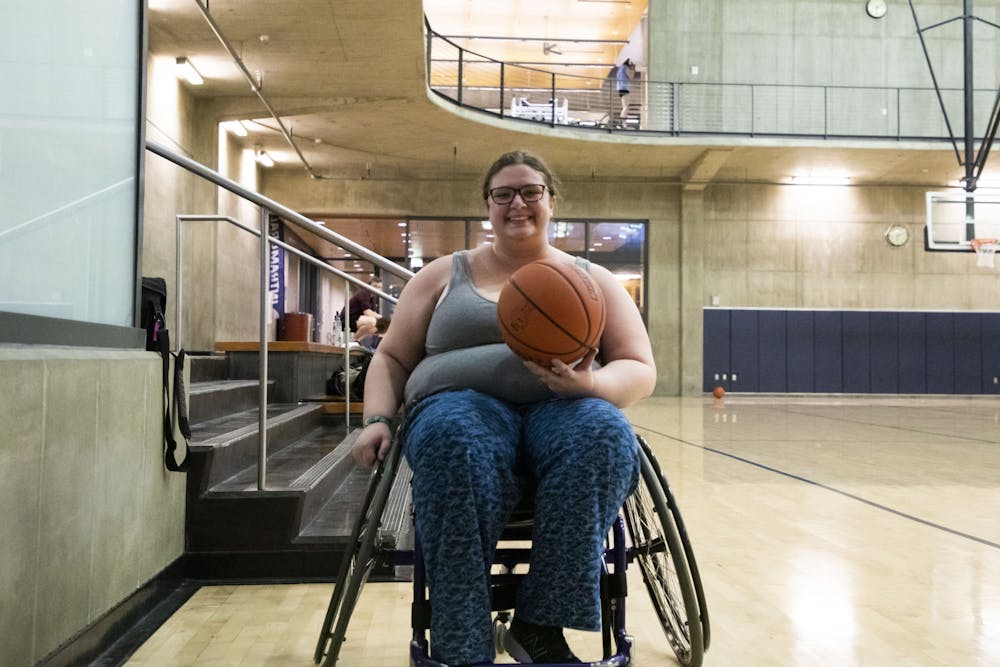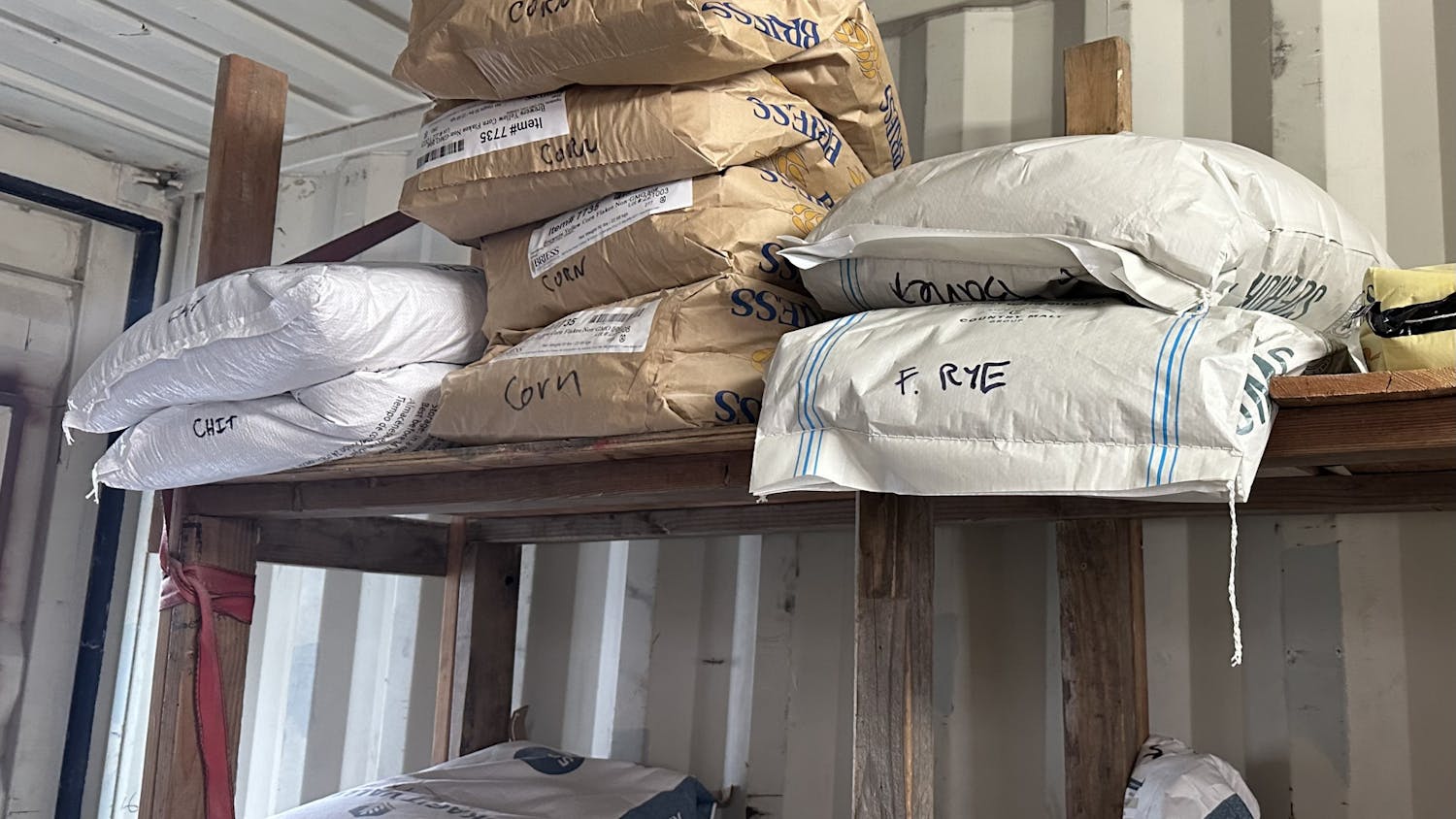From club leaders to student senators, campus accessibility affects many students at Western Washington University. When students hear about accessibility, they might think of Western’s Disability Access Center, which helps students get accommodations for their accessibility needs. However, the issue of accessibility extends beyond the walls of the DAC office.
Western’s campus sits on top of a large hill connected to the Sehome Hill Arboretum, an outdoor space where students can walk and hike its many different trails. Western’s campus spans 215 acres, and for students with different physical needs, this can pose an issue.
Ted Topper and Angela Romeo are two students with physical disabilities navigating their way around Western’s campus.
Topper is a student senator of Fairhaven College who has a knee impairment. He wants students like himself to feel and be supported. He said it can be exhausting having to advocate for himself to get his needs met.
“Have patience with us, we’re tired, really tired, and sometimes just getting up and getting out of bed is a challenge,” he said.
Topper said the length of Western’s campus is challenging, taking him 40 minutes to walk from Buchanan Towers, a south campus residence hall, to the Viking Union, which is about one mile north.
Romeo is the president of the Adaptive Sports Club and of the wheelchair basketball team.
“The length of campus is challenging, the older buildings are also a challenge, I’m often needing to wait for someone to operate the wheelchair lifts for me,” Romeo said.
Romeo has a mobility impairment as part of her disability, and she uses a cane part-time and a power chair part-time. A power chair is an electric wheelchair that can be controlled by just the user's fingertips.
Although Whatcom Transportation Authority buses run every 15 minutes between north and south campus, Romeo and Topper both said it can be difficult to get to and from buildings around campus.
Some students are concerned about exiting a building if an emergency happens. Topper said in Miller Hall, there is no immediate accessible exit for students on the top floors.
“If you look at the top of certain areas you can see a handicap symbol that says ‘refuge,’” Topper said. "Rather than ways to get us out, they found ways to have us hunker down in dangerous situations and wait for rescue.”
According to Western’s facilities management, there are approximately 1.9 million bricks on the Western campus, and missing bricks in paths across campus are difficult to navigate for people who use wheelchairs like Romeo.
The Instagram account wwu_brickart features bricks students painted on campus. The account has made a post encouraging painters to take bricks from the outside paths and not directly in the middle as students have made Reddit posts asking others not to.
“The missing bricks really suck,” Romeo said.
Romeo said cracks, potholes and missing bricks are frustrating, but they are hard to fix.
According to the City of Bellingham Historic Places website, Western, specifically the area around Old Main, is built on top of a partially filled peat bog. A peat bog is a dense wetland filled with some partially decomposed vegetation.
According to Western Today, Donald Judd’s "Untitled 1982" sculpture had to be moved from outside Old Main because of the dampness of the soil caused by the peat bog. The environment causes the ground to move and due to shifts, cracks can open.
Due to the unevenness of campus, Romeo has tipped on three wheels before.
“It is an uncomfortable feeling,” she said.
Kurt L. Johnson, a professor from the Department of Rehabilitation Medicine at the University of Washington, explained that when universities are not accessible, students with disabilities can have limited participation.
“With ‘reasonable’ accommodations, most students with disabilities can participate fully in their college or university experience,” Johnson said.
Accessibility and inclusivity are important to the wheelchair basketball team that Romeo leads.
“We believe everyone deserves to play a sport and to get active, whether the barrier to getting active is having a disability or another barrier, we want everyone to get out and recreate,” Romeo said.
Wheelchairs are available for practice, and practices are open to all Western students and the greater Bellingham community.
Romeo and Topper said, as much fun as practices and other sports are with the community that has been built in Bellingham, there are other small actions students can take to help make disabled students' lives just a little easier.
“This university isn’t friendly to us, tries to hide us and push us to a corner, rather than actively engage us in the community,” Topper said.
Romeo said that she has noticed other students are not always paying enough attention to students with physical disabilities when they are boarding the buses on campus.
An action like leaving the seats open in the front of the bus for students who physically need it can make a difference, she said.
For those interested in attending, wheelchair basketball practices occur weekly 6:30-7:30 p.m. on the basketball courts at the Wade King Student Recreation Center. Campus resources like the Disability Access Center can be found here.






